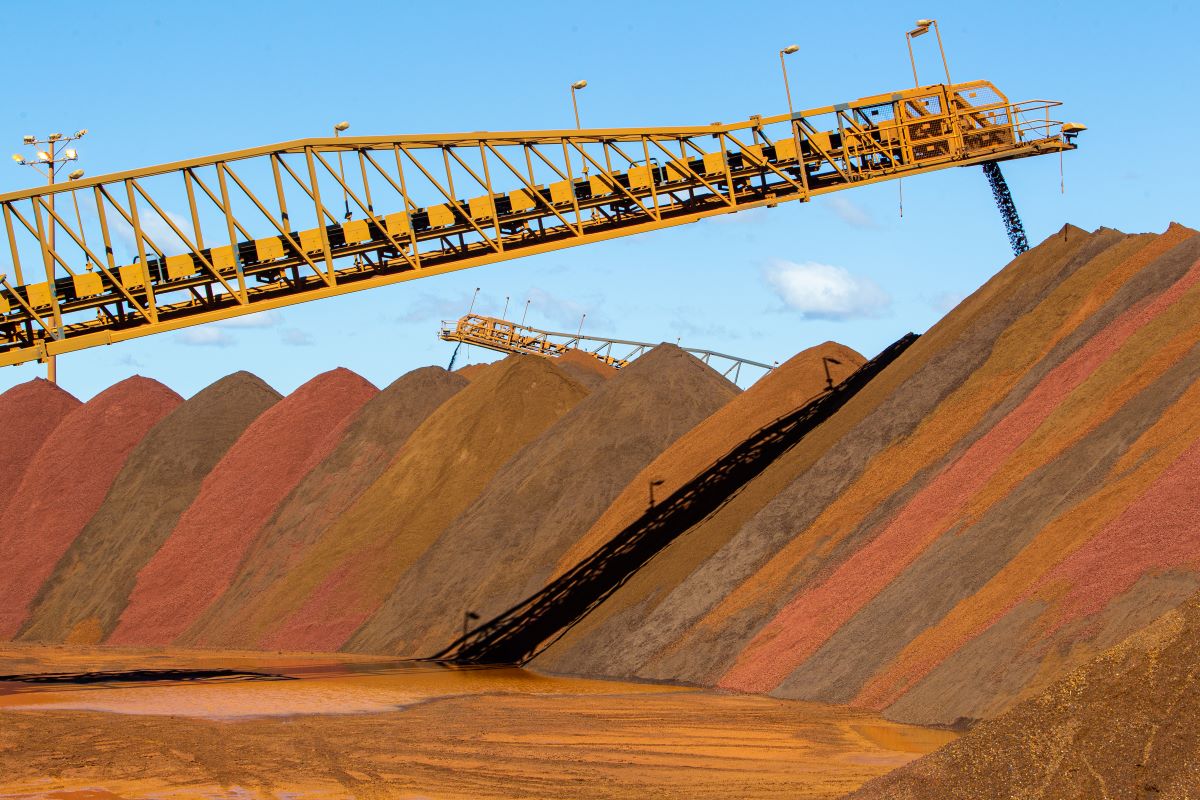After years of pushing back against the pricing power wielded by big miners, China is now setting up a state-backed iron ore giant in a bid to invest in mines and buy the commodity in bulk for cheaper. The China iron ore giant will replace the purchasing power of steel companies in the country and enhance the position of Beijing in the global commodities market for procuring steel-making materials.
China has often accused the world’s biggest mining companies such as Anglo-Australian Rio Tinto and Australia’s BHP Billiton of deliberately hoarding iron ore and manipulating the prices in the international markets for earning higher profits. Previously, China’s top policymaking agency National Development and Reform Commission (NDRC) had blamed these two overseas miners and one from Brazil for falsifying supply issues of iron ore.
Why a China iron ore giant?
China Mineral Resources Group was established on June 19 with a registered capital of 20 bn yuan (~$3 bn), as per reports published by Chinese media. The company will deal in mining, ore processing and trading of the mineral. Yao Lin, the former chairman of Aluminum Corporation of China, who stepped down last week, is likely to head this new state-owned company, as per a report by Sina Finance. Guo Bin, executive vice president of China Baowu Steel has been named the general manager of the new firm.
The exact shareholding details of China Mineral Resources Group were not immediately available, but it is likely that the new company will be backed by the State-owned Assets Supervision and Administration Commission (SASAC), China Aluminum Group, China Baowu, Minmetals Group, and some other state-backed mining and steel companies.
China is the world’s biggest consumer of iron ore which it feeds into its massive steel industry. The country imports nearly 80% of its iron ore supply, and 60% of this comes from Australia. The two countries have been at loggerheads over several issues over the past couple of years which has deteriorated their relationship. Back in December 2021, China said it will encourage domestic exploration of iron ore to reduce dependence on Australia and other countries while streamlining production quotas.
The issue at hand is China’s lack of control over iron ore prices, whereas domestic steel companies are also competing against each other for iron ore procurement. A central authority for the procurement of iron ore will potentially enhance the purchasing power of China and consolidate the iron ore import business.
“Because various iron and steel enterprises are in their own way, they have a low voice in the procurement of iron ore in the face of overseas mining enterprises, resulting in domestic iron and steel enterprises can only be led by the nose to a certain extent,” Zhang Fengrui, senior analyst for iron ore at Lange Steel Network, told a local Chinese publication.
Iron ore prices have been highly volatile during the pandemic. The mineral became the most volatile commodity in the world during mid-2021 and has shed more than 50% of its value in 2022. Back in June 2021, iron ore spot prices hit an all-time high of $235 per tonne but are now hovering around the $134 mark.
Why does it matter?
Although Beijing has often criticized big miners for iron ore price manipulation, this is its biggest effort to potentially rein in prices and consolidate its procurement prowess. Separately, any mine investments by China, such as the ambitious Simandou iron ore project in Guinea, are likely to come under the ambit of the new entity.
Earlier this year, China announced it was planning a centralized purchasing platform for iron ore imports, a plan that is backed by the country’s senior leaders and was in the works for a few years.
On the other hand, China could reduce its dependency on Australia for iron ore, while increasing purchases from Brazil’s Vale. The new entity could thus pose a threat to Canberra’s dominance in the global iron ore market.


 Australia
Australia China
China India
India Indonesia
Indonesia Japan
Japan Malaysia
Malaysia Philippines
Philippines Singapore
Singapore South Korea
South Korea Taiwan
Taiwan Thailand
Thailand Vietnam
Vietnam







